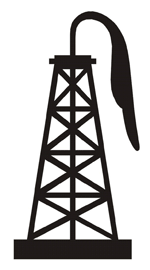Working documents: Resource Revenue Transparency
Promoting Natural Resources Revenue Transparency and Accountability - Chandra Kirana, 2010
Position Statement and Resolution on Resource Revenue Transparency
Arusha Declaration, Second Global Conference of Parliamentarians Against Corruption, 2006
New Book: La renta de hidrocarburos en las finanzas prefecturales. Tendencias de los ingresos y gastos (1997-2007) by Juan Luis Espada
 After a 9 percent budget deficit in 2002, Bolivia’s economy improved sufficiently to lead to a surplus in 2006. This economic revival was due to the exploitation of hydrocarbons and the resultant surplus increased public spending. This report prepared by the Center for Labor and Agriculture Development Studies (Centro de Estudios para el Desarrollo Laboral y Agrario or CEDLA) explores how additional revenues from extractive industries are used at the regional level. It also identifies the impact of the new flow of resources on public spending. Finally, the report looks at changes in the structure of Bolivia’s public administration as a result of the additional revenues from extractive industries. CEDLA is a research center founded in 1985 to analyze economic policies related to rural and urban workers.
After a 9 percent budget deficit in 2002, Bolivia’s economy improved sufficiently to lead to a surplus in 2006. This economic revival was due to the exploitation of hydrocarbons and the resultant surplus increased public spending. This report prepared by the Center for Labor and Agriculture Development Studies (Centro de Estudios para el Desarrollo Laboral y Agrario or CEDLA) explores how additional revenues from extractive industries are used at the regional level. It also identifies the impact of the new flow of resources on public spending. Finally, the report looks at changes in the structure of Bolivia’s public administration as a result of the additional revenues from extractive industries. CEDLA is a research center founded in 1985 to analyze economic policies related to rural and urban workers.
To read the report, go to:
http://www.internationalbudget.org/resources/library/LibroTendenciasRenta.pdf
